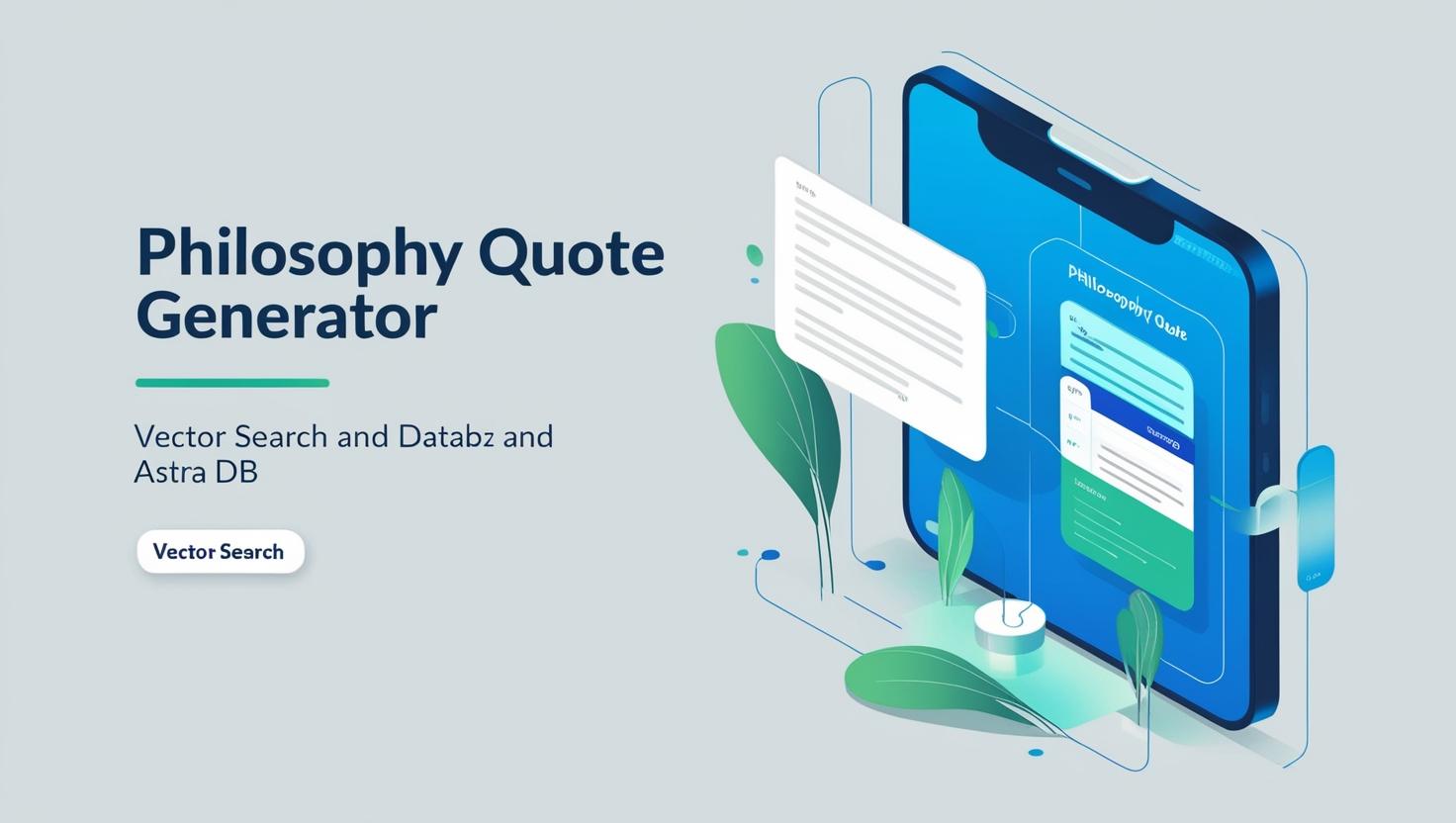Introduction: Mixing Philosophy and Technology
Making a philosophy quote generator is a fun and useful project. It brings old wisdom together with new technology. Tools like Vector Search and Astra DB help create a system that stores quotes and finds them based on their meaning. This guide is the third part of the series. It will explain the steps in very easy words, giving you all the details you need.
Setting Up Astra DB for the Project
What Is Astra DB?
Astra DB is a type of online database. It is built on Apache Cassandra and can handle a lot of data quickly. This makes it a great choice for a project like a quote generator. Astra DB allows you to store, manage, and find quotes without any delay, even if you have many of them.
Steps to Create Your Database
Sign Up for Astra DB
Go to the Astra DB website. You can sign up for free. It is simple to create an account, and the website is easy to use.
Make a New Database
- Log in and go to the dashboard.
- Click on “Create Database.”
- Give your database a name, like PhilosophyQuotesDB.
- Choose a cloud provider (such as AWS, Google Cloud, or Azure) and pick the closest location to you.
- Click “Create Database,” and Astra DB will set everything up in a few minutes.
Download the Connection Bundle
Once your database is ready, download a connection bundle. This is a file with all the details you need to connect your app to Astra DB. Keep this file safe.
Using Vector Search to Find Quotes
What Is Vector Search?
Vector Search is a smart way to find data. Instead of looking for exact words, it finds data based on the meaning of the text. Traditional searches only match words, but Vector Search uses machine learning to understand what you are really looking for. This makes it perfect for a quote generator, so users can find quotes even if they don’t know the exact words.
Preparing the Data
To use Vector Search, you need to organize the quotes:
Collect Quotes from Philosophers
Gather quotes from famous thinkers like Aristotle, Confucius, and Nietzsche. Save the quotes in a CSV file or add them directly to a database.
Convert Quotes into Vectors
Use a tool like Sentence Transformers to change each quote into a vector. A vector is a set of numbers that represent the meaning of the quote.
Store the Vectors in Astra DB
Save both the original quotes and their vector data in Astra DB. This way, you can search by meaning or by text.
Building the Backend
Pick the Right Programming Language
Choose a language that works well with databases and machine learning. Python is a good option because it has libraries like FastAPI (for APIs) and sentence-transformers (for vector processing).
How to Connect to Astra DB
Install the Cassandra Driver
First, install the Cassandra driver for Python. Run this command:
pip install cassandra-driver
Connect to Your Database
Use the connection bundle to securely link your app to Astra DB. Here is a sample code:
from cassandra.cluster import Cluster
from cassandra.auth import PlainTextAuthProvider
auth_provider = PlainTextAuthProvider('username', 'password')
cluster = Cluster(['Astra_DB_endpoint'], auth_provider=auth_provider)
session = cluster.connect()
session.set_keyspace('philosophy_quotes')
How Vector Search Works
Create the Search Function
Use the sentence-transformers library to make the search function. It will match user inputs to the best quotes based on meaning.
Here is an example:
from sentence_transformers import SentenceTransformer
import numpy as np
# Load the model
model = SentenceTransformer('all-MiniLM-L6-v2')
# Function to find similar quotes
def find_similar_quotes(user_input, quotes):
user_vector = model.encode([user_input])[0]
similarities = [np.dot(user_vector, quote['vector']) for quote in quotes]
top_match = np.argmax(similarities)
return quotes[top_match]['text']
Store and Retrieve Data
Each quote in Astra DB should have:
- The text of the quote.
- The name of the author.
- Its vector data.
Use CQL (Cassandra Query Language) to add and get this information from Astra DB.
Designing the User Interface
Keep It Simple
Create a clean interface where users can:
- Type a word or sentence.
- Get a matching quote.
Use HTML, CSS, and JavaScript to design the frontend. If you prefer, you can use frameworks like React or Vue.js to make the process faster.
Show the Results
Make sure the results are easy to understand. Display:
- The matching quote.
- The name of the author.
- A button for users to try again.
Testing the Quote Generator
Why Testing Matters
Testing makes sure your app works well. It also helps you find and fix problems like wrong matches or slow loading times.
Steps to Test
Test Different Inputs
Use different words and sentences, like:
- A single word (e.g., “truth”).
- A full sentence (e.g., “What is the purpose of life?”).
Check If Results Are Correct
Make sure the quotes match the meaning of the user input.
Test the Speed
Ensure the app works fast, even if you have a large number of quotes.
Notes from My Experience
I found this project both challenging and fun. For example, matching user inputs with the right quotes was tricky at first. But using Vector Search made it much easier. It felt amazing to see how the app could understand the meaning of words. It reminded me how technology and creativity can work together to solve problems.
